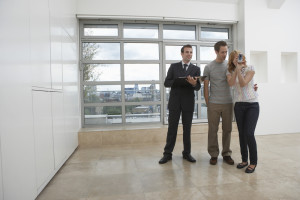The renter population in the U.S. has expanded greatly, with the national average rent reaching $1,420 in January, according to Yardi Matrix data. This average amount varies throughout the country and in highly sought-after areas, such as New York or San Francisco, the average amount is well above the $3,000 mark.
Yet, the sum you’re planning on spending on your apartment doesn’t mirror the total amount that cheaper place costs, remember if something seems too good to be true, it usually is. So be aware of hidden expenses that could easily put some holes in your pockets.
Commute costs
Always take into account that cheaper apartments are located in distant neighborhoods, thus you need to calculate costs (money & time) spent on daily transit, be it by personal car or through public transport. On the long run, a cheaper apartment with high transportation costs could end up more expensive than one that’s a bit more expensive but doesn’t require you to travel long distances every day.
Security deposits
At the sign of the lease, verify if your security deposit is refundable, because if it’s not, you’ll have to add it to your overall cost of your new home. In the event it is, make sure you sort out terms, take detailed photos of the property you’re about to move into and complete a walk-through condition form.
Renters insurance
Your belongings need insurance. As a renter you can acquire the renter’s insurance policy, which will cover your personal possessions in case of damages beyond your control (such as fire, vandalism, etc.) Moreover, some landlords might even require proof you have renter’s insurance when you wish to sign the lease. Even though this policy is not costly, you will still need to add it to your monthly payments.
Parking payments
If you own a car, you know already it comes with its array of expenses. Look into your new place’s parking options and see what type of parking is available in the area (metered-only or monthly permit) and how much it costs.
Laundry
Onsite laundry is slowly turning from a sought-after amenity into a must-have. Yet, not all communities offer such perk. Know that if your apartment doesn’t come with access to its own machines, you will have to include this extra expense in your monthly budget.
Climate
Depending on where you live, the cost of utilities (particularly heat and air conditioning) could be a bit of a burden. Try to get additional information about the specific costs of apartments in your building before you sign the lease.
Pet roommates
If you’re sharing your home with one or more pets, you already know that pet fees should be discussed up front. Some locations have a one-time fee, while others require monthly extras to your rent.
